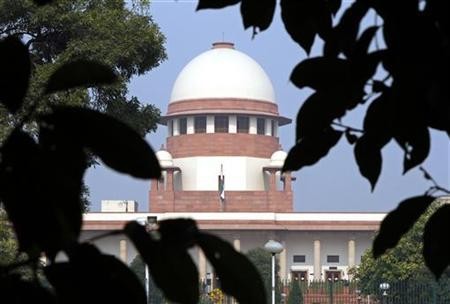
The Supreme Court on Thursday quashed the National Eligibility cum Entrance Test (NEET) for admission to MBBS, BDS and post-graduate medical courses, ruling that the Medical Council of India (MCI) doesn't have the authority to conduct a common entance test.
The apex court's verdict came after 115 petitions were filed challenging MCI's notification on NEET for admission to various courses in medical colleges in the country.
The bench comprising Chief Justice of India Altamas Kabir, Justice Vikramajit Sen and Justice A R Dave gave a split verdict but ruled in favour of quashing the NEET based on a majority 2:1 verdict.
Kabir and Sen were of the opinion that the MCI notification was in violation of some Articles of the Constitution and said that it has not been empowered to conduct an India medical entrance test. However, Dave dissented arguing that NEET is legal and the society needs it.
The bench, however, ruled that the verdict will not affect the admissions that have already been completed.
It may be recalled that the apex court had directed the MCI, government and private colleges in May this year to start their admission process by clearing the way for declaration of the examinations results. It had ruled in December 2012 that MCI, Dental Council of India and other institutions across the country could conduct their respective entrance exams for admission to courses like MBBS and BDS but would not declare the results until the court gave further notice.
The court's verdict has evoked mixed response from experts.
"We did not want a common admission process. The country can not let that happen. The purpose was to reduce the misuse," cardiologist Dr Devi Shetty, who was a member of MCI, told CNN IBN.
S Srikanth, CEO, Consortium of Medical, Engineering and Dental Colleges of Karnataka, told the channel that "admissions are mostly based on money factor and not the merit factor" and stressed on the need of focusing on "the quality of medical education".
Senior lawyer Harish Salve said that the country should promote opening of more universities, arguing that shortage of medical seats is the root cause of malpractices. "Why can't India have enough seats so that entire manipulation business comes to an end?" he asked.














